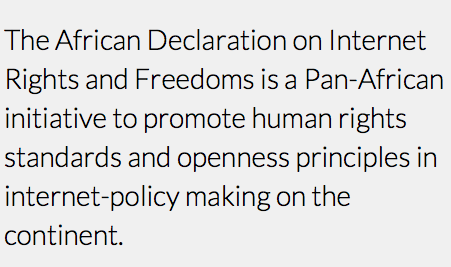
At the Internet Governance Forum in Instanbul, Turkey, the African Declaration on Internet Rights and Freedoms was unveiled. The result of one year of discussions among NGOs, stakeholders, and interested parties, including through online comments, the Declaration is "a Pan-African initiative to promote human rights standards and principles of openness in Internet policy formulation and implementation on the continent. The Declaration is intended to elaborate on the principles which are necessary to uphold human and people’s rights on the internet, and to cultivate an Internet environment that can best meet Africa’s social and economic development needs and goals."